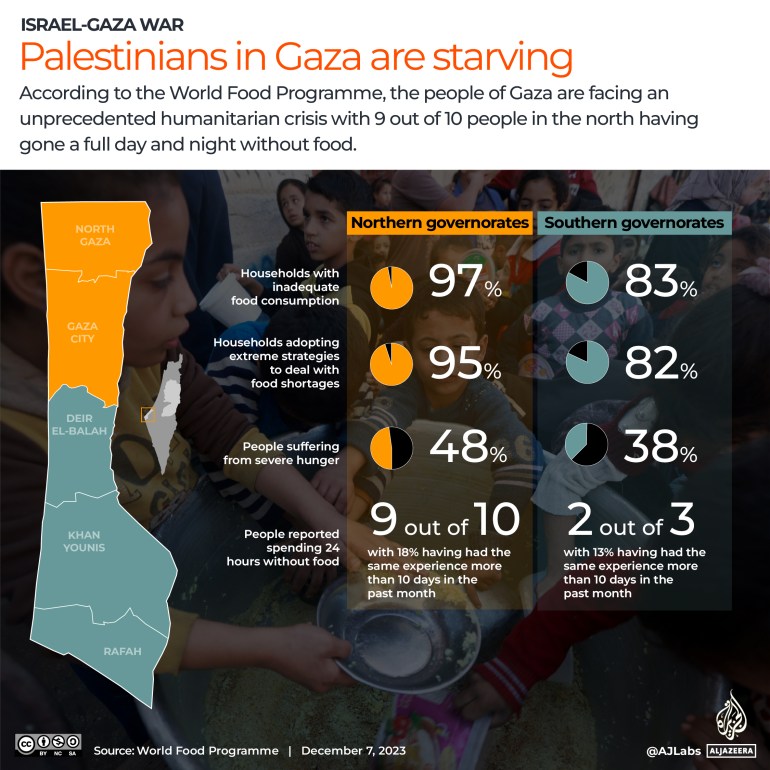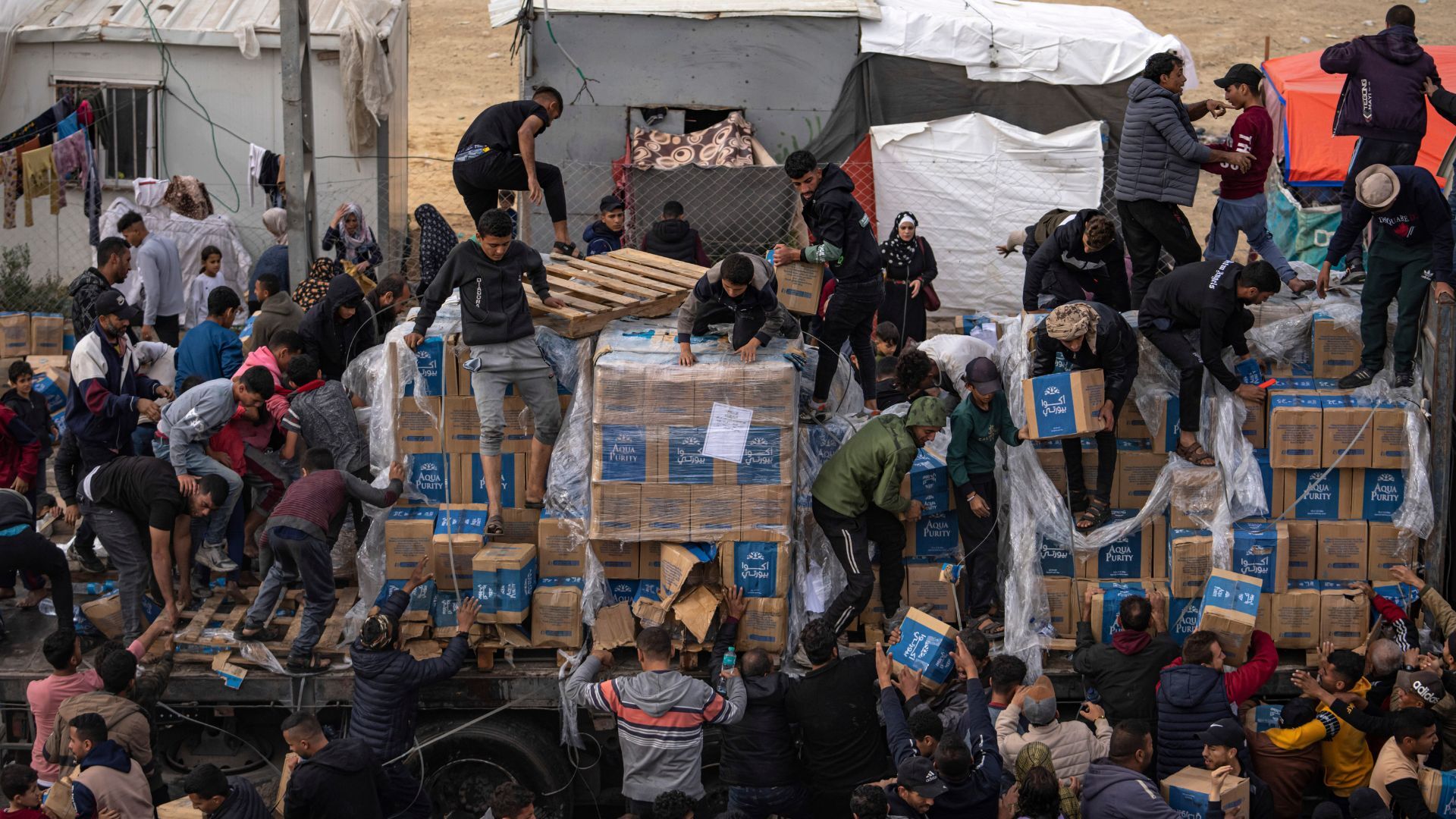
The World Food Program (WFP) says its ability to provide Gazans with basic needs is on the verge of collapse amid the escalation Israeli attacks.
“There is not enough food. “People are starving,” WFP deputy director Carl Skau wrote on X, formerly Twitter, after a visit to the besieged coastal strip on Friday.
He said his team had reached more than a million people, “but the situation is untenable. “We must deliver our supplies,” Skau wrote, calling for an immediate humanitarian ceasefire.
Only a fraction of the necessary food reaches the Gaza Strip, there is a lack of fuel and no one is safe, Skau continued in a WFP statement, adding: “We cannot do our work.”
Camps and emergency shelters are overcrowded, he wrote, and the muffled thunder of Israeli bombing can be heard in the background every day.
“When law and order collapses, any meaningful humanitarian operation is impossible,” the United Nations official said.
“Gaza residents live crammed together in unhealthy housing or on the streets as winter approaches, sick and without enough food,” he added.
Israel continues to bomb Gaza The United States vetoed it A U.N. Security Council resolution called for a ceasefire on Friday, a move that was strongly condemned by humanitarian groups.
In a rare move, UN Secretary General Antonio Guterres triggered the vote with a call Article 99 The UN Charter declaration, a measure that has not been used for decades, said: “The people of Gaza are staring into the abyss.”
At least 17,700 Palestinians, mostly women and children, have been killed and nearly 49,000 injured in two months, while many people are still trapped under the rubble.
Skau said the recent seven-day ceasefire showed that humanitarian assistance could be provided when conditions permitted.
“We have food on trucks, but we need more than one crossing. And once the trucks are inside, we need free and safe passage to reach the Palestinians wherever they are. This will only be possible with a humanitarian ceasefire and ultimately we must end this conflict,” he said.
“Nine out of ten people don’t eat every day”
On Saturday, Skau told Reuters that a new procedure for inspecting Gaza aid was being tested at the Karem Abu Salem border crossing, called Kerem Shalom by Israel.
Israel has so far rebuffed UN requests to open Karem Abu Salem, but both signaled on Thursday that the border crossing could soon help handle the delivery of humanitarian aid to Gaza.
![In this handout image released on December 2, 2023, the Palestinian Red Crescent team welcomes a humanitarian aid truck at a location indicated as the Rafah border crossing between Egypt and the Gaza Strip. [Palestine Red Crescent Society/Handout via REUTERS]](https://www.aljazeera.com/wp-content/uploads/2023/12/crossing-1702141020.jpeg?w=770&resize=770%2C578)
So far, only limited amounts of aid have been delivered from Egypt through the Rafah border crossing, which is poorly equipped to handle large numbers of trucks.
Trucks drove more than 40 km (25 miles) south to Egypt’s border with Israel before returning to Rafah, causing bottlenecks and delays.
“It’s good, it’s useful because it would also be the first time that we could then bring in a pipeline from Jordan. But we also need this entry point because that would make all the difference,” said Skau.
Speaking to reporters in Israel earlier this week, Colonel Elad Goren, head of the civil department at COGAT, the Israeli agency for civil coordination with the Palestinians, said: “We will only open Kerem Shalom for inspection.” It will happen in the next few days. “
Goren said a COGAT team is in discussions with the United States, the United Nations and Egypt about increasing the level of humanitarian assistance.
“We have frontloaded our internal resources so that we have food available in Egypt and Jordan to reach about 1,000,000 people in a month. We’re ready to roll. “The trucks are ready to go,” said Skau.
Skau described the situation in Gaza as increasingly chaotic as people grabbed what they could from aid distribution points.
“The question is how long this can continue because the humanitarian operation is collapsing,” he said.
“Half the population is hungry, nine out of ten don’t eat every day. Obviously the need is huge.”






Recent Comments